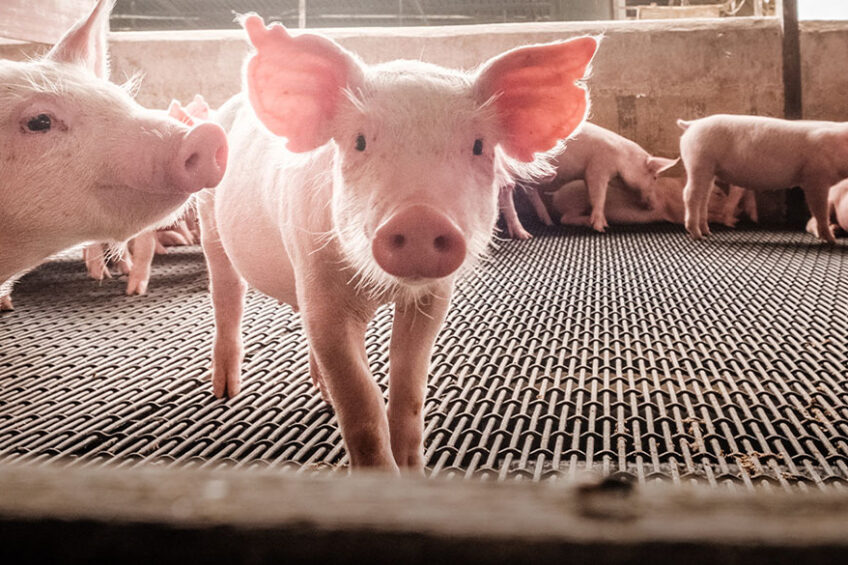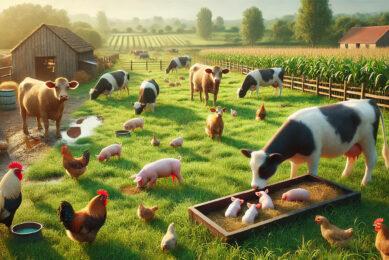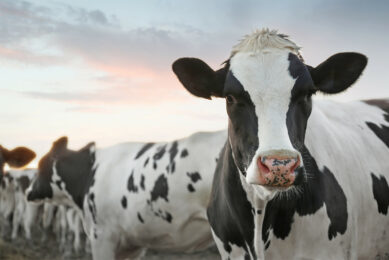Creating resiliency against pathogens

When animals are exposed to pathogens the gut is the primary target. Creating resiliency through feed solutions can help poultry and swine overcome disease challenges for improved health and productivity.
Poultry and swine producers must achieve efficient growth and optimise animal health in the face of multiple environmental, management, animal welfare, labour and facility challenges. Among those challenges are disease-causing pathogens that affect health and productivity.
While it’s virtually impossible to eliminate pathogens from the environment, producers can work to make animals and birds more resilient against their harmful effects. Creating resiliency through feed solutions can help protect livestock health and well-being, while responding to consumer preferences for chicken, eggs and pork produced without antibiotics.

Creating resilient animals and birds
The key to animal resiliency is understanding the role of the gut in immune function. The gut is the primary point of attack from invading gastrointestinal pathogens such as E. coli, or Salmonella. Although each pathogen’s effect on the animal is different, once ingested they have a single target – the gut lining. When gut immunity falters, animals become more susceptible to a wide range of diseases.
Since the gut is the first line of defence against many diseases, it’s clear why maintaining a healthy gut makes animals more resilient against pathogen challenges. A properly functioning gut allows for proper feed digestion and nutrient absorption and prevents the energy drain caused by unnecessary immune responses so animals can maintain health and performance.
Swine and poultry producers have an opportunity to provide real-time protection and reduce the risk of disease-causing pathogens and toxins entering the animal’s system. By managing these challenges proactively and effectively in the gut, producers may be able to enhance animal health and performance and reduce the need for antibiotic treatments.
Feeding for resiliency
Scientists and producers have become more interested in utilising feed strategies to enhance gut health for better immune response. Certain feed additives help maintain a healthy gut by managing the natural microbial populations and immune response in the digestive system. These dietary ingredients can prepare animals’ immune systems ahead of pathogen challenges, so the animal can respond more effectively and maintain optimal health and performance.
Multiple research studies demonstrate that feeding the refined functional carbohydrates (RFCs) found in Celmanax can help provide a healthy base for animal growth and development, leading to improved animal productivity. RFCs work by supporting the beneficial bacteria found in the intestine while blocking sites for attachment by certain pathogens.
RFCs are the components harvested from yeast cells (S. cerevisiae) using specific enzymes during a proprietary manufacturing process. Components of RFCs have specific modes of action to support the immune system, including:
- Supporting consistent growth of beneficial bacteria
- Protecting intestinal cells
- Binding pathogenic bacteria such as E. coli and Salmonella
- Preventing certain protozoa from attaching to the intestinal wall and causing disease
Resiliency leads to improved performance
Research shows that supplementing diets with RFCs can make poultry more resilient under stressful conditions, leading to better feed efficiency and improved performance.
In a commercial layer trial involving 4 houses with 60,000 to 90,000 hens per house, feeding RFCs reduced mortality, increased egg production per hen housed and increased case weight. Treatment with RFCs also reduced the prevalence of Salmonella at 16 weeks and 45 weeks (Tables 1 and 2).
A research study with broiler diets showed that supplementation with RFCs effectively enhanced bird performance, improving weight gain and feed conversion, leading to more uniform bird size and weight at slaughter. A study with 1,600-day-old chicks demonstrated the benefit of RFCs on performance of birds raised under standard coccidiosis management programmes. Adding RFCs to diets improved performance of birds vaccinated for coccidiosis as well as those fed a coccidiostat. (Figure 1).
Supporting resiliency in piglets
Feeding RFCs also supports animal resiliency in swine production facilities. Weaning is a time when young pigs are particularly vulnerable to disease-causing pathogens. Supporting gut function during this stressful time can support immunity to help maintain piglet health and performance.
To understand how RFCs impact piglet resiliency, researchers studied performance, health and immune response in young pigs faced with a simulated immune challenge.
Piglets were assigned either a control diet or 1 of 2 RFC treatment diets for 4 weeks.
After the 4-week feeding period, test piglets were injected with lipopolysaccharide (LPS) at the rate of 50 µg/kg. LPS is found within the cell walls of gram-negative bacteria. This component stimulates the release of inflammatory cytokines, leading to an acute inflammatory response. Control piglets received a saline solution injection. A post-challenge health evaluation showed that piglets supplemented with RFCs had lower temperature and respiratory rate during the first 4 hours after LPS injection, indicating a positive effect on immune function. This response suggests that RFCs may benefit weaned pigs subjected to immune challenges that are common in the face of disease-causing pathogens during the early weaning period.
RFCs support immunity, health and productivity
In conclusion, maintaining gut health through feed strategies can make animals more resilient to disease pathogens and other challenges. As swine and poultry producers seek proactive approaches to control pathogens without antibiotic intervention, feeding RFCs may be one solution to support immunity, health and productivity.
Author: Sangita Jalukar, Technical Services Manager, Arm & Hammer Animal and Food Production
Join 13,000+ subscribers
Subscribe to our newsletter to stay updated about all the need-to-know content in the dairy sector, two times a week.






